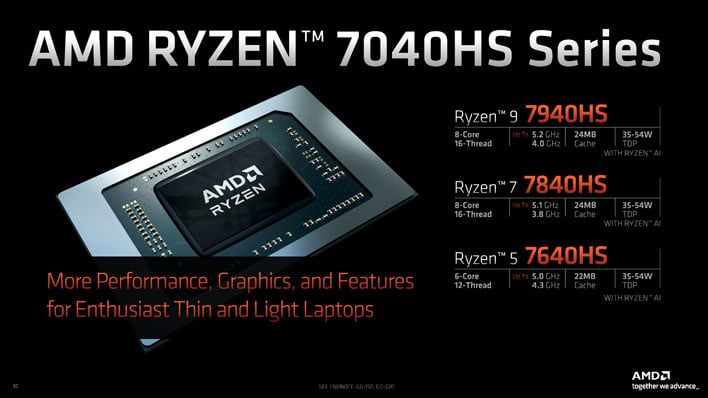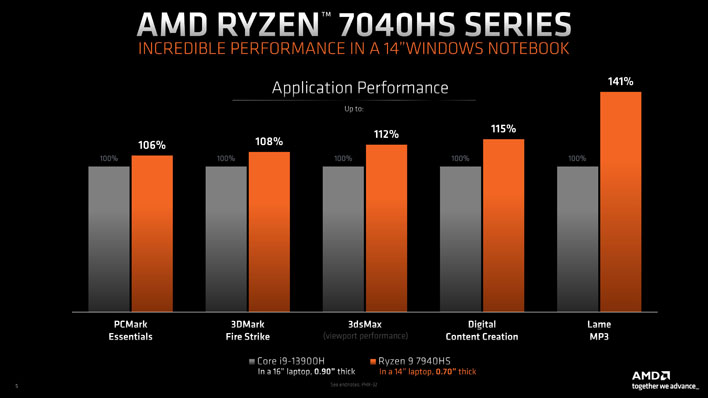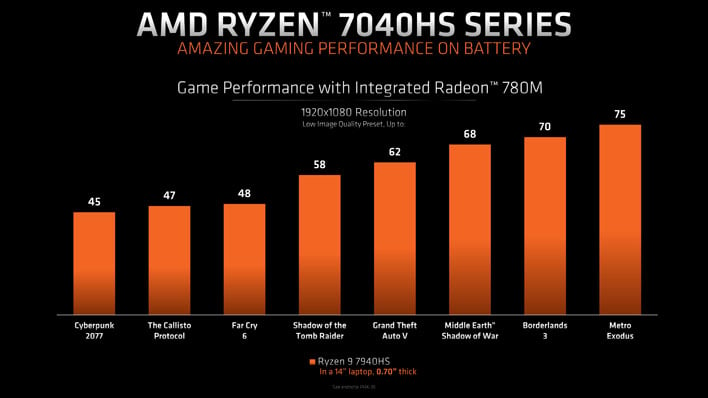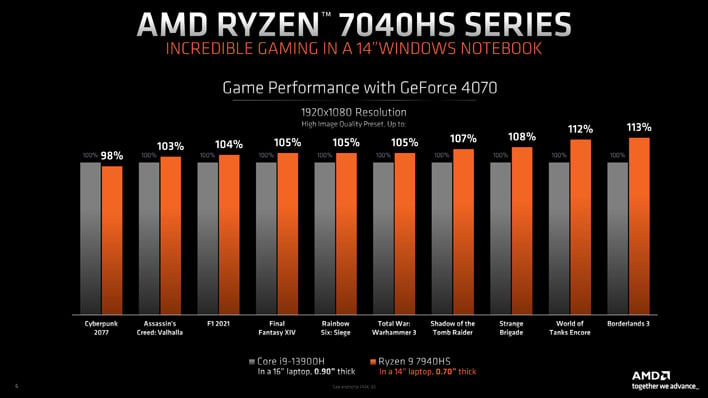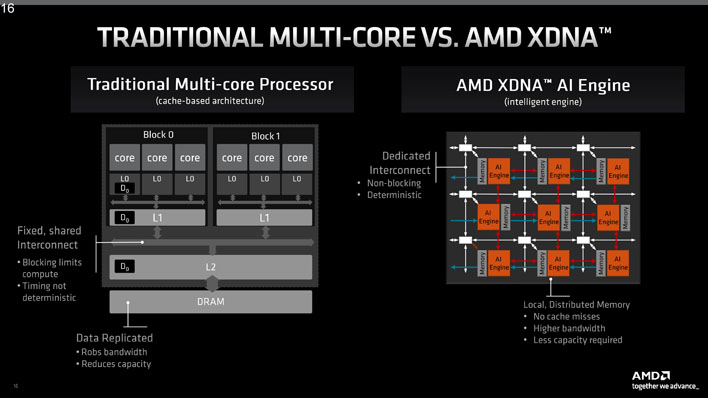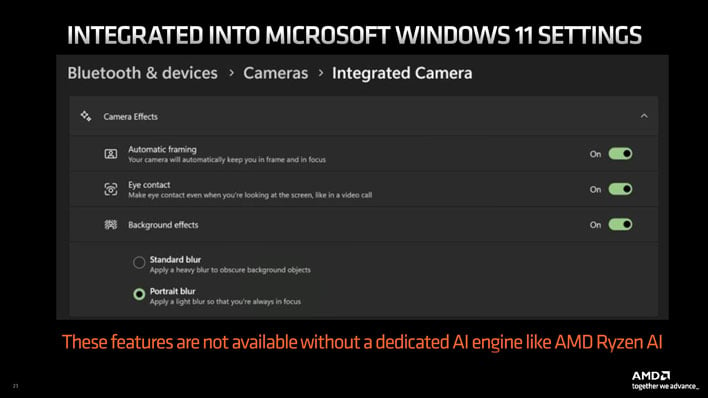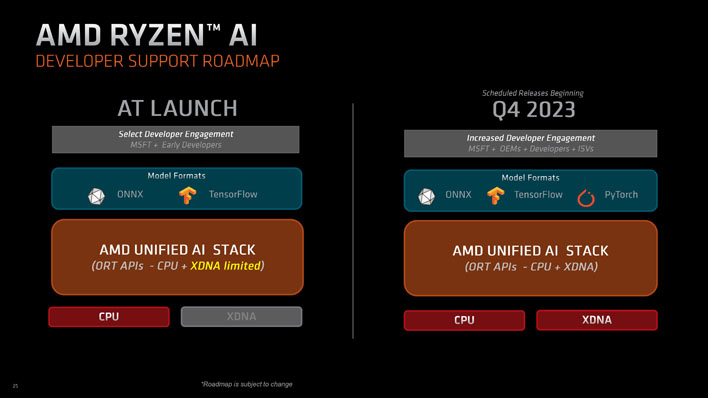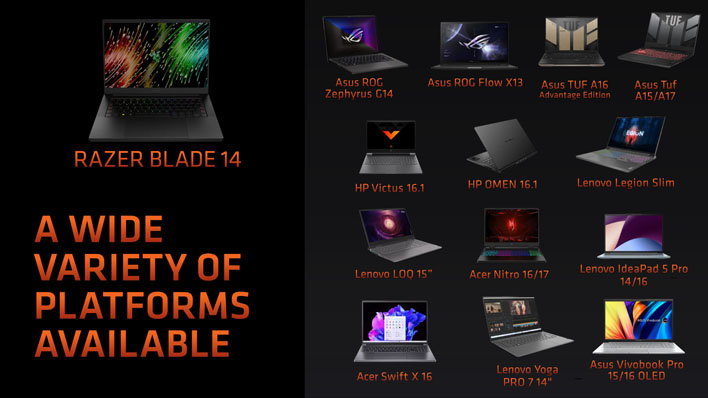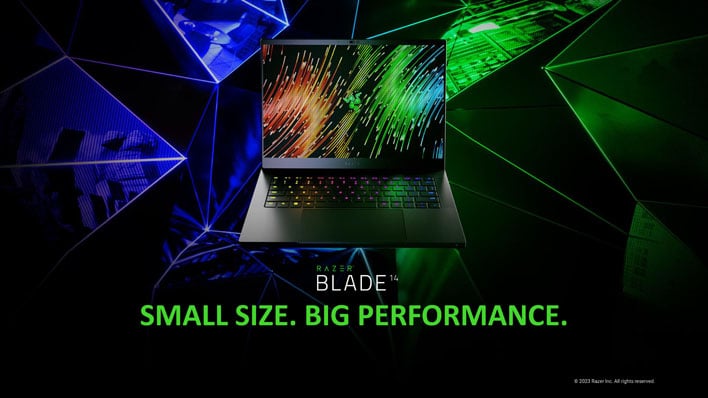AMD's XDNA AI-Accelerated 7040HS Zen 4 Phoenix CPUs Arrive For Premium Gaming Laptops
Well, that's neat, but why should you care, as a laptop buyer? Put simply, these are AMD's best laptop processors. Sure, if we're talking about raw performance then we have to talk about the Ryzen 7045HX series, codenamed "Dragon Range", but those are really just desktop processors stuffed into a laptop form factor, intended for high-powered desktop replacement systems.
In contrast, the Ryzen 7040HS chips are proper laptop chips, with exceptional efficiency and impressive connectivity (without the need for an external chipset), all at a TDP that makes sense to cool in a laptop chassis. These are competitors for Intel's 45W laptop processors, and AMD says it can beat the Core i9-13900H in both application benchmarks as well as video games.
These benchmarks look a lot like our own tests for the ASUS ROG Ally. That machine uses a Ryzen Z1 Extreme processor which is a very close relative of the Ryzen 7040HS series, being that it's based on fundamentally the same silicon. It's likely that whatever test platform AMD was using didn't enjoy the high-performance memory configuration of the ROG Ally, but it also clearly wasn't suffering under a brutal 35W TDP limit.
Some two-thirds of AMD's presentation about these processors was dedicated to talking about AI and how the Ryzen 7040HS processors can accelerate it. There's an XDNA-architecture AI accelerator onboard all of the "HS" processors, and AMD is very keen to explain that it's not just wasted silicon—the accelerator has real applications right now.
The specific use case that AMD points out is for the Windows 11 Studio Effects. These are AI-powered effects that can be applied to a webcam feed, and include automatic framing, AI-powered eye contact simulation, and background effects that can blur out objects behind you if your environment for your Zoom call is too embarrassing. As AMD points out, these features don't work without a dedicated AI processor, as they're simply too demanding to run on standard CPUs or GPUs.
One of the criticisms of AMD's GPU hardware is that the software stack for AI is pretty poor. An awful lot of the most popular edge AI software runs on the PyTorch framework, and AMD doesn't support it. Well, that's going to change by Q4 of this year, apparently. AMD's planning to have a fully-unified AI software stack that supports CPUs, GPUs, and XDNA accelerators.
AMD announced these processors way back at CES of this year, and at that time, the company expected that they'd be available in laptops starting in March. That didn't happen for whatever reasons, but companies announced their computers and a few models started to trickle onto the market in May. Today, AMD is announcing broad availability of systems with Ryzen 7040HS processors.
Foremost among these is the Razer Blade 14, which marks the second generation of Razer Blade laptop to be available with an AMD CPU. This system looks pretty stellar, so if you'd like to learn more, hop on over to our special coverage of it for a full run-down of the new Blade 14.

